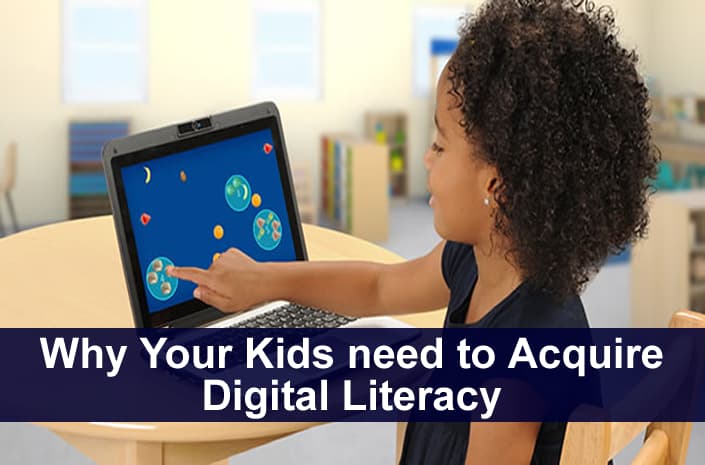Importance of STEM Education in Nigeria educational system
STEM stands for Science, Technology, Engineering, and Math. So take a biology class in college, and technically you’re taking a class that’s a part of STEM. However, STEM is much more than just a useful way of grouping subjects in a catchy acronym.
STEM education goes beyond school subjects. It gives a skill set that governs the way we think and behave. Merging science, technology, engineering, and mathematics, STEM education helps us to solve the challenges the world faces today.
In a world that is becoming increasingly complex, where success is driven not only by what you know, but also by what you can do with the knowledge, it is imperative for youths to be equipped with skills to solve tough problems, gather and evaluate evidence, and make sense of information.
These are the importance of STEM Education in the NIGERIA educational system;
STEM-Enhanced Teamwork and Communication
STEM education prepares the world for the future. It is based on teamwork and the collaboration of professionals from different disciplines. As a STEM student, you do not need to be an expert in each particular subject. You rather acquire a mindset that enables you to become a part of the highly qualified workforce, which functions in collaboration. Teamwork brings a significant increase in productivity, work satisfaction, and profitability.
Active engagement of experts from diverse fields will drive change in our society. STEM education exposes students to effective interdisciplinary communication. Scientists research and experiment, offering the team discoveries. Technology experts provide gadgets that can make the work of the team more effective. Engineers help to solve challenges by designing and running platforms that enable change.
Mathematicians analyze information to eliminate mistakes and provide precise calculations. Our world is continuously changing. The only way we can be ready for its challenges is through communication and collaboration.
Collaborative experience also helps to broaden the impact of STEM education. Working with local experts and international colleagues, can promote values and move towards a single purpose. This way, we improve communities, offering new educational and employment opportunities. Such open access to world-class experience is possible only when we combine our knowledge and capabilities.
Preparation of STEM Experts Who Can Make a Difference
STEM education gives people skills that make them more employable and ready to meet the current labor demand. It encompasses the whole range of experiences and skills. Each STEM component brings a valuable contribution to a well-rounded education.
Science gives learners an in-depth understanding of the world around us. It helps them to become better at research and critical thinking. Technology prepares young people to work in an environment full of high-tech innovations. Engineering allows students to enhance problem-solving skills and apply knowledge in new projects. Mathematics enables people to analyze information, eliminate errors, and make conscious decisions when designing solutions.
STEM education links these disciplines into a cohesive system. Thus, it prepares professionals who can transform society with innovation and sustainable solutions.
The STEM approach to education fosters creativity and divergent thinking alongside fundamental disciplines. It motivates and inspires young people to generate new technologies and ideas.
Social Awareness
There is a high demand for STEM skills in society. STEM education enables people to make informed decisions within the discussed subject areas.
Besides, one of the goals of STEM initiatives is to encourage the broader participation of women and minorities in the STEM workforce. This allows us to bridge ethnic and gender gaps. It needs the engagement and participation of schools, policymakers, parents, students, and educators. This is the only way to continue technological and scientific progress
Sustainable Solutions to Challenges
STEM subjects are focused on providing solutions to the concerns society has today. Human history had seen years of thoughtless exhaustion of natural resources. Such a lack of environmental education led to numerous challenges. These issues affect the health and well-being of all living organisms on our planet. Our environment needs protection. Thus, sustainability became one of the most urgent aspects studied by STEM disciplines.
The youth is more worried about climate change than the older generation. As statistics shows, 70% of young people aged 18 to 34 worry about global warming. STEM education can answer their questions. It can teach them how to find the necessary solutions for sustainable development. Education is a powerful tool that ensures the rise of a STEM literate society which will be on the positive side for a country like Nigeria.
Well-educated community members can find ways to work in a competitive world. They will use sustainable practices that do not harm nature. In the bigger picture, economic and social progress is tightly connected to the environment. We need to work our way to a sustainable future. Yet, it is possible to accomplish only with STEM skills, experiences, and a multi-disciplinary approach.
STEM is a new way of learning.
As a philosophy, STEM is meant to create a program that integrates all four disciplines in a way that forces the student to use cross-disciplinary knowledge to solve problems. Which essentially means that the traditional learning style incoming freshman are used to—typically some form of memorization and recitation of information—is pretty much out the window.
You’ll rarely be given the explicit solution to a problem. Instead, you’ll often be required to use what you already know to figure out the right answer for yourself. This requires a significant amount of creativity and flexible thinking, as well as technical knowledge and mastery of each individual discipline.
This approach to education is often why those of us who are extremely analytical, but not especially creative, tend to struggle with STEM. Successful students quickly learn how to think for themselves and abandon their expectations of being told what to think.
Of course, STEM teachers won’t assume that incoming freshmen in a basic technology class already have mastery of advanced, graduate-level mathematics.
Students in STEM are guided in their learning to build up mastery of the four disciplines over time, just like non-STEM students. However, when the time comes for them to apply what they’ve learned, whether a student does well or not depends heavily on how well they’re able to solve the problem, not how much they’ve memorized.


This is a great initiatives, and this will assist majority of students the opportunity to think critically, and as well analyse their thoughts. Moreso, we as a nation will move to a level of being an independent society with each, or majority of her citizens been a job creator. Thanks